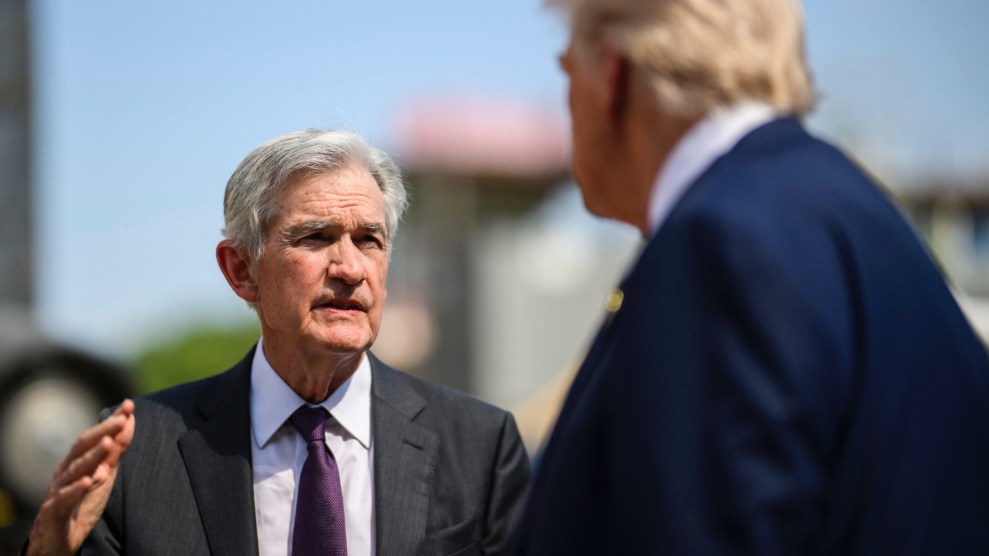|
||||||
A prediction: The 146 trade ministers jetting into Mexico this week for the World Trade Organization’s latest mega-meeting will have the least fun anyone’s ever had in Cancun. Not for them the gentle, curving beaches, the swaying palms, or happy hour at Senor Frog’s. The ministers are in for days of hardball negotiation capped, most likely, by disappointment, impasse and recrimination. Pass the tequila.
The meeting, among other things, is supposed to nail down the details of how rich countries will open their markets to developing ones. Countries like the United States, Japan, and the E.U. nations, for all their gung-ho talk about free trade, heavily subsidize home-based agriculture and manufacturing, pricing developing countries out of the world market.
The Cancun meeting is part of the current round of WTO trade talks, launched in the Qatari capital, Doha, in November, 2001. The “Doha Round” was supposed to do away with these imbalances, but wealthy countries haven’t shown much willingness to follow up. The Financial Standard has this on the growing disillusionment of developing countries.
“‘As things stand, the report card (on the Doha Round) is disappointing,’ Guchinga Ndirangu, a trade policy expert at Heinrich Boll Foundation, said recently. ‘The rhetoric at Doha meeting where rich countries committed to initiate reforms which would place the interests of the poor at the heart of development agenda has not been matched with tangible action.'”
At the core of the Doha Round is the issue of farm subsidies. Seventy percent of the world’s poor are dependent on agriculture, and lowering barriers to farm goods from developing countries would improve the conditions for many millions of people. Adriano Campolina Soares writing for the BBC points out that instead of reducing subsidies, the U.S. and the E.U. have banded together and done exactly the opposite:
“Rich countries promised to cut the $330bn in subsidies they lavish on their farmers.
These subsidies destroy local markets and put farmers out of business in developing countries; they are flooded with cheap imports such as wheat, maize, milk and sugar, and they drive down world prices for exporters.
But instead of slashing subsidies, the U.S. ramped up its support by $175bn over 10 years and the E.U. has fudged reform of the Common Agricultural Policy, putting off any real cuts until 2013.”
Not unreasonably, developing countries have low expectations going into the Cancun talks. David Jessop writing for the The Jamaica Observer argues that, outside of the U.S. and the E.U., “confidence is limited about the likelihood of a positive outcome in Mexico.” Developing countries and emerging economies, he writes, will have to band up against the northern states. Translation: it’s going to get ugly:
“Nations outside of the wealthy OECD group have recognised the need to flex their muscles if they are not to be disadvantaged. The result is that WTO ministerial meetings have become a form of war without bloodshed.
In this process, the developing world has come to realise the importance of creating solidarity and a largely south-oriented consensus. Seattle and Doha showed the importance of emerging economies acting with less powerful developing nations to counterbalance an often aggressive EU and US view of trade liberalisation and a singular political view of the world.
The result is that almost all developing nations have become more assertive in trade negotiations and are no longer prepared to enable a consensus that is not in their interests.”
But as Reuters points out, Mexico, the host of this week’s WTO meeting, is a stark reminder that poorer countries usually get shafted in trade negotiations. And should the Doha agenda fail, these developing countries will inevitably fare the worst:
“If the Doha Round fails […] the WTO could become an irrelevant talking shop, and trade deals would be increasingly struck between pairs or groups of governments.
Countries in sub-Saharan Africa or the likes of Pakistan or Bangladesh would be the big losers if that were to happen: They would either have to accept tough conditions for improved market access or find themselves driven to the margins of the world economy, with the attendant risks of political radicalization.”
Although the outcome of the WTO’s Cancun meeting still remains to be seen, The Observer’s Nick Mathiason reports that “hopes for any significant breakthrough […] have been dealt a severe blow” as plans have been set for an unscheduled ministerial trade meeting (to revisit the issues that should have been settled in Cancun) early next year. The news of the unscheduled meeting will likely outrage protestors, writes Mathiason, who may see it as a sign that agricultural issues will be glossed over. The result? Another Seattle. (In which case, will journalists come up with a phrase to rival “The Battle in Seattle”? “The Spanking in Cancun”?)
“This new meeting has been discussed as fears grow among trade negotiators that agreement will not be reached on vital issues such as agricultural tariff reduction by Europe and America.
The news will provoke fury from the thousands of protesters gathering in the Mexican beach resort of Cancun this weekend and could spark a repeat of the riots that brought similar talks in the American city of Seattle to a chaotic close.”
















